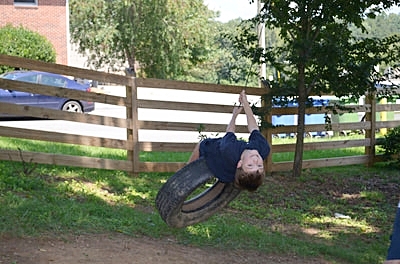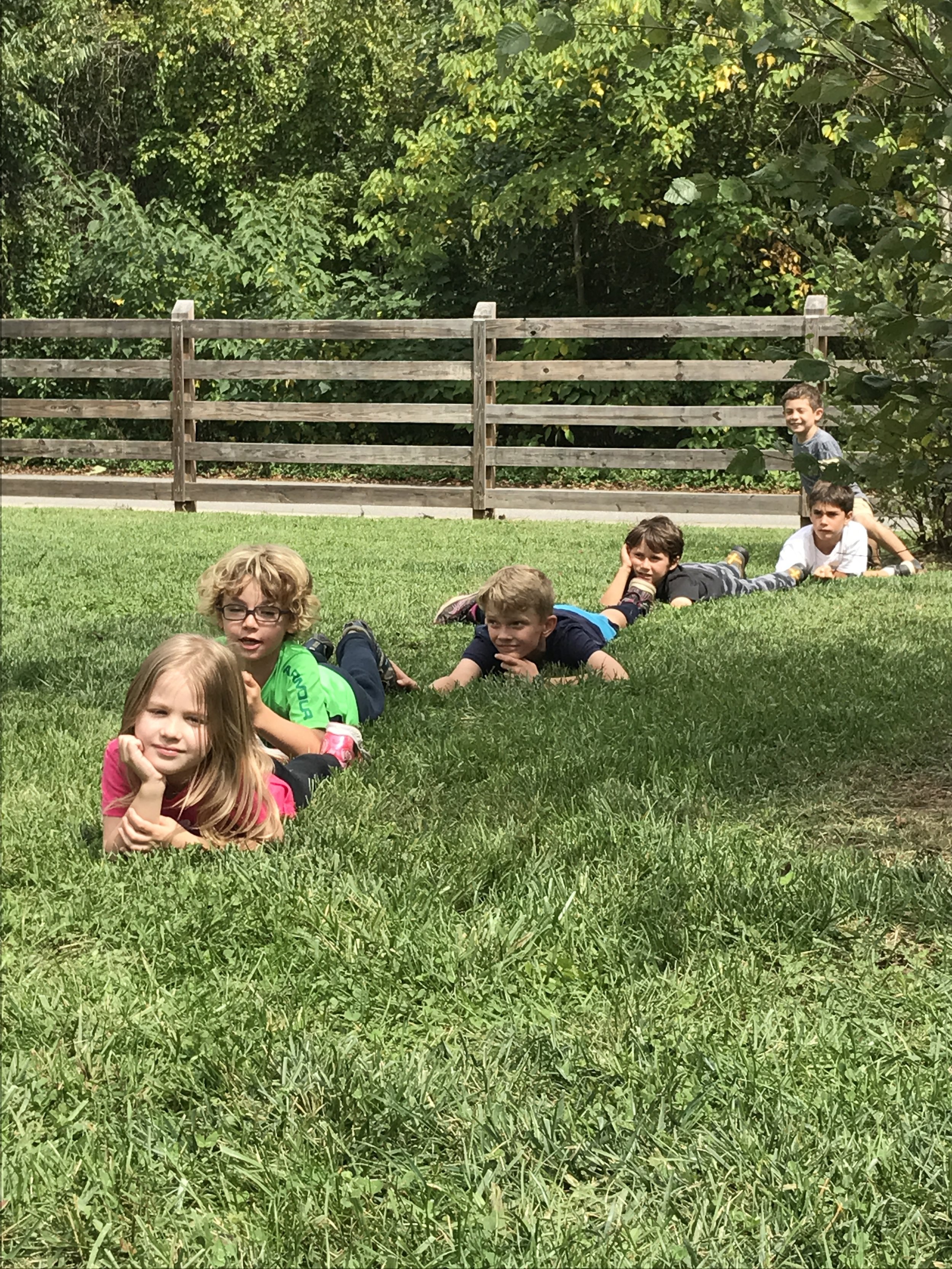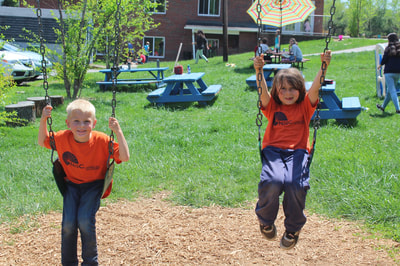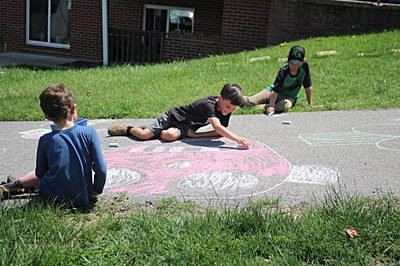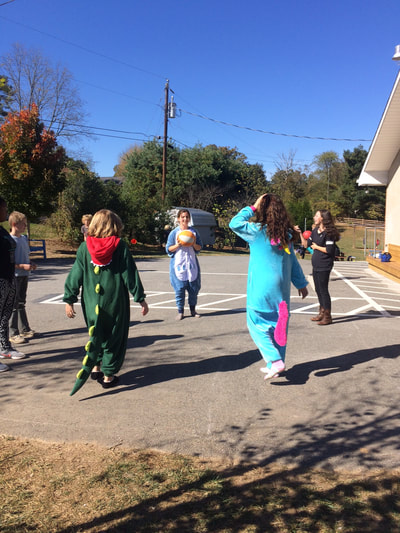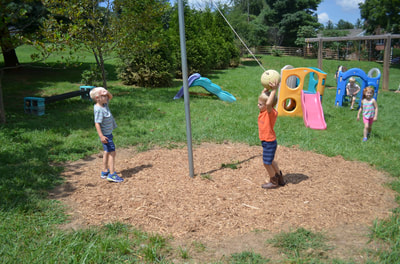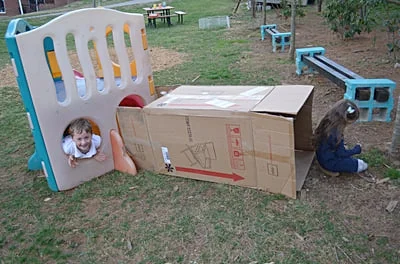Outdoor Experience
We believe that children learn critical skills through imaginative play, need a lot of space and time to move their bodies, and develop better both cognitively and physically with access to the outdoors. A wave of research has emerged recently with findings that support these claims.
We get outside to play as much as possible, with at least a full hour every day at lunch time. Our non-traditional playground is really a blank slate of a backyard, with an open field, shade trees, and lots of places to explore. We are constantly amazed by the elaborate stories our students spin there, the unique observations they make, and the complex games they invent and sustain -- using sticks, rocks, pine needles, dirt, ant colonies, walnuts, and whatever else nature supplies.
The playground is the place where our students explore social interactions with boys and girls both younger and older than themselves. Under adult supervision, but without constant adult intervention, they use play, games, and sports to practice important social skills and solve problems. 12-year-olds learn how to behave around 5-year-olds, and 5-year-olds learn how to play with 8-year-olds. They learn to establish "fair" rules for made-up games, negotiate for prized supplies (like rocks and sticks!), intervene when they see injustice, and suggest compromises during arguments.
There is disagreement and conflict on the playground almost every day, and we welcome it as a critical learning opportunity. We teach peaceful and constructive conflict resolution through role play and modeling, but we do not resolve the conflicts for the students. We suggest, guide, and intervene if needed, but our ultimate goal is to empower our students to take responsibility for their actions and solve their conflicts for themselves.


